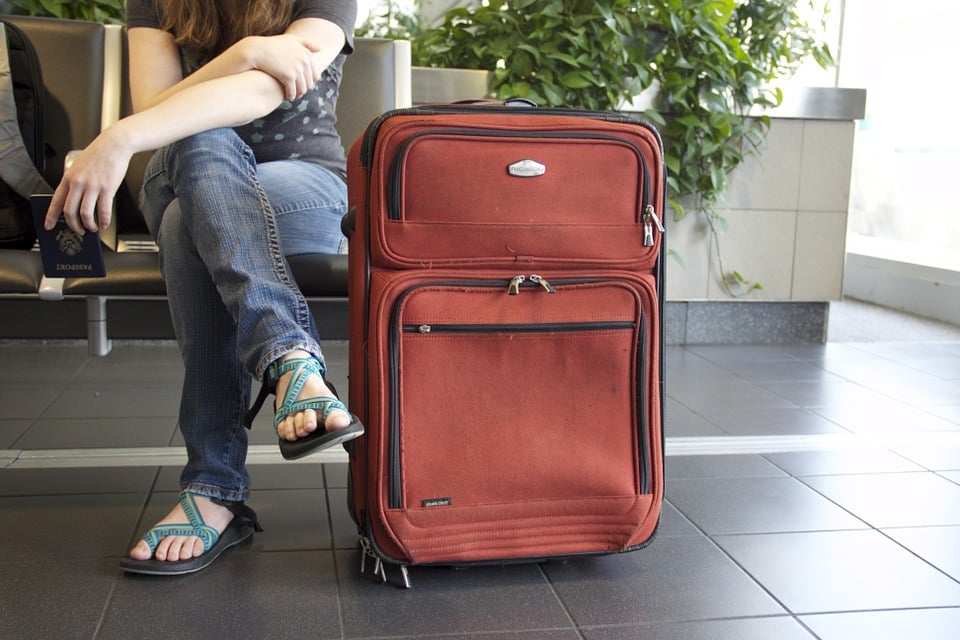Are you thinking of moving to the Netherlands to reunite with family or your partner in 2020?
If the answer is yes, first, you’ll need to establish whether you need a family reunification residence permit. Then you need to see if you are eligible and can receive this permit. There are many hoops you have to jump through to get to this point, so we’ll go into detail one by one.
Before we begin, it’s important to note that in most instances, you’ll need to have any necessary documents translated and legalised before moving to the Netherlands to reunite with family. They can be in Dutch, English, German or French. To learn more about the visa process, you can find that here.

Where you’re from and your circumstances majorly affect your visa process. You must also meet other conditions if you are a Turkish national. We’ll touch a bit on all of this now. So, what is there to do before moving to the Netherlands to reunite with family?
I am an EU citizen
If you are an EU citizen then do not have to worry about a permit. As I just said, due to freedom of movement, you can move to the Netherlands providing you register and abide by the law.
My partner/family member is an EU citizen
If your partner/family member is an EU citizen and you are not, don’t panic. You’ll be eligible to apply for the Application for Verification against EU Law (certificate of lawful residence) that will allow you to both live and work in the Netherlands. It will last for five years (but you can extend it). This certificate of lawful residence ensures that you can stay and work in the Netherlands legally. You should only apply for this if you are planning on staying in the Netherlands for more than three months and if your spouse, partner, grandparent or child under 21 is an EU citizen.
Surprisingly, if they are a Dutch citizen, then it will be harder as you will not be able to apply in this way. In this instance, you must apply for the usual residence permit. The only way this is not applicable is if you lived together in another EU country beforehand. If this is the case, you will be able to apply. Complicated, huh? But what if neither of you are EU citizens?

Getting a family reunification permit in the Netherlands
The family reunification permit application will cost you € 171.
You can apply for this permit online if you already have a valid residence permit here in the Netherlands. You must do this through your DigiD. You can also apply online if this is your first time. However, if you have a temporary permit you must do it the traditional way through pen and paper (urgh, I know).

Note: If you are over the age of 18, you will not be allowed to move the Netherlands on the basis of staying with your parent/s. You must be here for a reason other than that. For example, to study or because you’ve got a job. If you’re under 18, they also must be able to support you for at least 12 months and you must be single.
Certificate of lawful residence in the Netherlands
As we said previously, you will be eligible for a certificate of lawful residence if your partner or family member is an EU citizen. The cost is a 50 euro non-refundable fee, with up to a six-month wait. But how can I apply for it?
First of all, you need to fill out a form that you will find on the IND website. You will have to take this, along with many other documents with you to your appointment. The documents you will need to take with you are:
- Valid ID;
- Proof that your partner/relative is lawfully staying in the Netherlands – this can be their proof of registration;
- Proof that you’re registered to the Netherlands;
- The proof of your relationship with said partner/family member — this can be a marriage certificate other proof of relationship and/or a tenancy agreement from when you lived together for at least 6 months;
- Proof that they can support you financially.
Once you’ve been accepted, this document will last for 5 years. This can be extended if necessary. You must inform the IND if your circumstances change (such as a separation), however, this does not mean that you won’t be allowed to stay. If you have been together for at least three years and spent at least one of these years living together in the Netherlands, then you will be allowed to stay.
How to obtain a Dutch residence permit
If you are an EU citizen, you will be able to move to the Netherlands as usual, due to freedom of movement. However, if you are a non-EU citizen, you will have to get a residence permit.
The same goes if you are moving to the Netherlands with your partner and neither of you is an EU citizen — you will both need to apply for a Dutch residence permit.
In order to qualify for a Dutch residence permit, you will need to meet the following conditions:
- You have a valid ID (such as a passport);
- You will undergo a tuberculosis test once you arrive in the Netherlands (you can be exempt from this following further conditions);
- You have signed an antecedents certificate, which is where you provide information about your criminal record;
- Both you and your partner are over the age of 21 (unless you are a Turkish national)
- You and your partner are going to live together immediately;
- You and your partner are married to one another OR are in a registered partnership together. You can even be unmarried, as long as you have a long-term and exclusive relationship together;
- You have passed the civic integration examination (unless you are exempt);
- Your partner declares that they are your sponsor;
- Your partner has a sustainable income;
- Your partner must have a valid permit/right to stay in the Netherlands. If it is a temp permit, then they must have been in the Netherlands for a least a year, which is not applicable if they are highly skilled or study.
Obtaining a residence permit through the TEV procedure in the Netherlands
If you want to obtain a residence permit this way, then you must do it through your consulate in your own country or the Dutch embassy. The non-refundable fee will be 233 euros for a partner and 50 euros per child.
To do it yourself you must fill in the form and send it to the IND. You can also opt for the partner/family member to do it if you’re not in the Netherlands yet. This should be done as soon as possible because it can take 90 days or more.
To do this, you will need these items from your partner/parents:
- Copy of their valid ID;
- Copy of the marriage certificate or similar;
- Copy of their residence permit;
- A declaration from the sponsor;
- Proof of income.

How to obtain a permit if you are a family member of a refugee in the Netherlands
If your family member has a temporary asylum residence permit in the Netherlands and you are either the parent of the child or their partner, then you will be able to apply for the dependent asylum residence permit. You will not need to pay for this.
You will need to meet these conditions:
- They are your family member and they have a temporary asylum residence permit in the Netherlands;
- Both of you are 18 or older;
- Both you must prove your identity and relationship to each other;
- This family member must be either your partner (exclusive or married – one partner), you are the biological mother or father or adoptive or foster parent up if they are under 25. For over 25, normal ties need to still be there — they then need to claim that they are your sponsor;
- You must have arrived in the Netherlands before them, or at the same time, not afterwards or you have submitted your application within 3 months of their permit;
- You have been mentioned when your family member went through the asylum procedure;
- You do not have a criminal record;
- If you are travelling as a child, your other parent has given permission for you to come to the Netherlands;
- You need to sign a non-impediment if you are over 15 years old.
Gaining a permit for your adopted or related foster child in the Netherlands
If your child is an EU national, refer to the start of the article, these conditions apply. If they are an EU national, there should be no reason for them not being able to live in the Netherlands with you (much easier). The following is if they are not an EU national.
This application will cost €57.
If you are looking to bring over an adopted child then you must meet these conditions:
- You are a Dutch citizen OR an EU citizen OR you have a valid residence permit for the Netherlands;
- You have proof that your adoptive child does not have any chronic mental and physical illnesses;
- You must declare that you are a sponsor of the child;
- Your adoptive child must have some form of ID and other means of identifying them;
- You can prove that the biological parents have their rights waivered and the country has allowed you to take the child from that country and allowed you to adopt them;
- You must have a ‘beginseltoestemming‘ from the Central Authority for International Children’s Affairs of the Ministry of Justice and Security, along with a Statement of Approval.
In the case of a related foster child you must meet these conditions:
- You’re a Dutch OR EU citizen OR you have a valid residence permit;
- You are either the grandparent, (half) sister/brother, sister/brother in law or aunt or uncle of the child;
- Your related foster child has no good future in their country;
- Your related foster child is under 18;
- You have proof that your relative foster child does not have any chronic mental and physical illnesses;
- You have custody of your foster child;
- You must have permission to be looking after the child;
- You declare that you are the sponsor of the related foster child and have sufficient income and care/education for the child.
As you can see, there are a variety of different processes to go through, depending on your circumstances. It’s best to get this sorted as soon as you can if you’re moving to the Netherlands to reunite with family.
Any other info or tips about moving to the Netherlands to reunite with family? Let us know in the comments!
Feature Image: OctavY/Pixabay
Editor’s note: This article was originally published in March 2019 and was fully updated in November 2010 for your reading pleasure.



Hello Great article. Here is my dilemma. Can you tell me our situation – best direction? My father was born in Limburg Nederland in 1930 and I have his birth certificate. My Mom was born in Paramaribo Suriname. I am in Canada, born here in 1966. My husband is Canadian by birth and so am I.
We would like to relocate to the Netherlands. What would be in your opinion most direct way?? I DO HAVE some relatives in Holland. One Aunt who lives there and still alive (on Moms side) and cousins. That’s it. All grandparents died long ago. My father passed in 2003. My Mom is still alive and in Canada. Thank you and
Much appreciated.
Hoi!
I have a child from my previous marriage. I am going to marry a Dutch national. Can I bring my child with me to Netherlands? I have solo parent documents.
Can I move to the Netherlands? I have brothers& Sisters living there. For the last 40 years Are mom& dad are dutch. They moved to the us in the 1945. And then in 1971 moved back to holland. In1979 I moved back. To the USA. But would like to move bake to holland